Gallery Network
Belgian Artist Wim Delvoye Turns a Contemporary Lens on the Historic Collection at MAH Geneva
With his work interspersed between the museum's collection, Delvoye investigates the connection between institution and object.
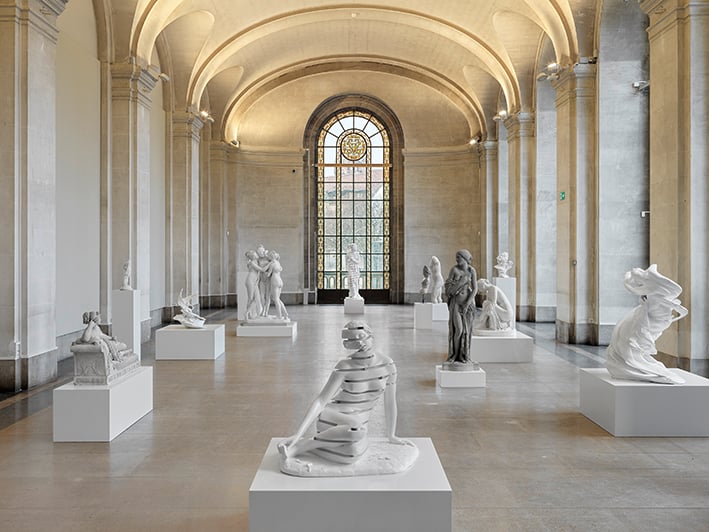
With his work interspersed between the museum's collection, Delvoye investigates the connection between institution and object.

Artnet Gallery Network

Every month, hundreds of galleries add newly available works by thousands of artists to the Artnet Gallery Network—and every week, we shine a spotlight on one artist or exhibition you should know. Check out what we have in store, and inquire for more with one simple click.
What You Need to Know: In the fourth edition of its XL exhibition series, the Musée d’art et d’histoire (MAH) of Geneva invited Belgian artist Wim Delvoye to investigate the relationship between the museum and its collection of objects—giving the artist carte blanche to curate his own show, “The Order of Things.” Other artists who participated in this ongoing project include Ugo Rondinone in 2023, who focused on the theme of transformation, where Delvoye instead homed in on ideas around perception and understanding. Playing on the genres and mediums that proliferate throughout the museum’s collection, such as marble statuary, medieval armor, and religious artifacts, and reimagining them through a contemporary lens, Delvoye is able to bridge past and present. On view through June 16, 2024, “The Order of Things” offers visitors the ability to explore Delvoye’s work and practice, and see the MAH’s collection from a new perspective.
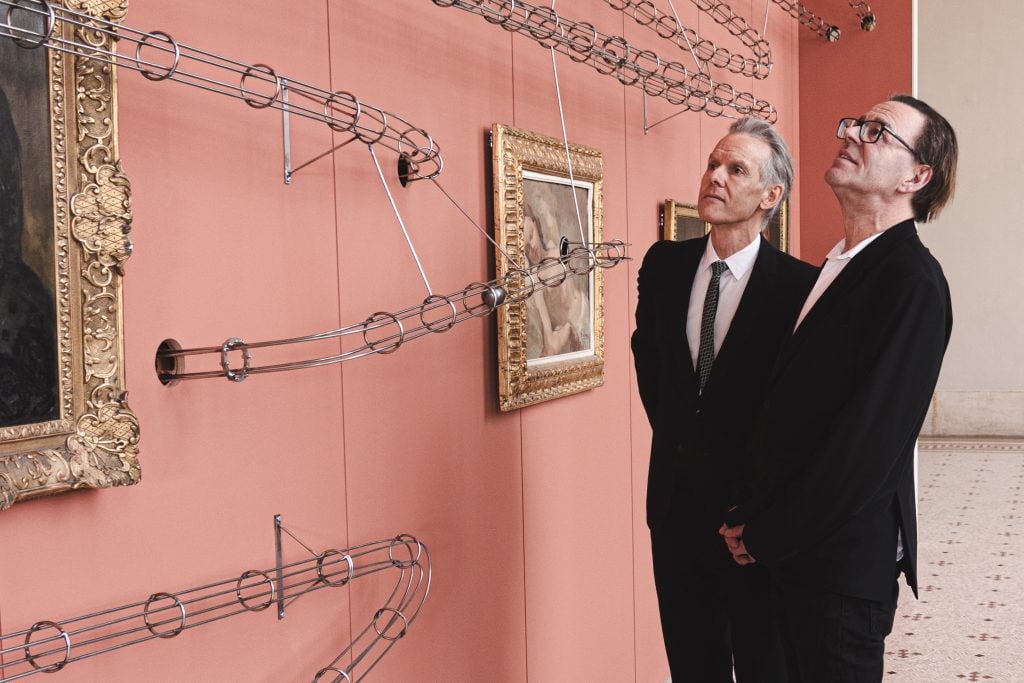
MAH Geneva Director Marc-Olivier Wahler (left) and artist Wim Delvoye (right).
About the Artist: Neo-conceptual artist Wim Delvoye (b. 1965) is recognized for his experimental, boundary-pushing practice that draws from both high and low culture. Some of his most notable projects have included tattooing pigs, depicting traditional blue-and-white delftware patterns on ironing boards, and creating a machine that mimics a digestive tract, Cloaca (2000–2010), and produces “excrement” that are given away as artworks.
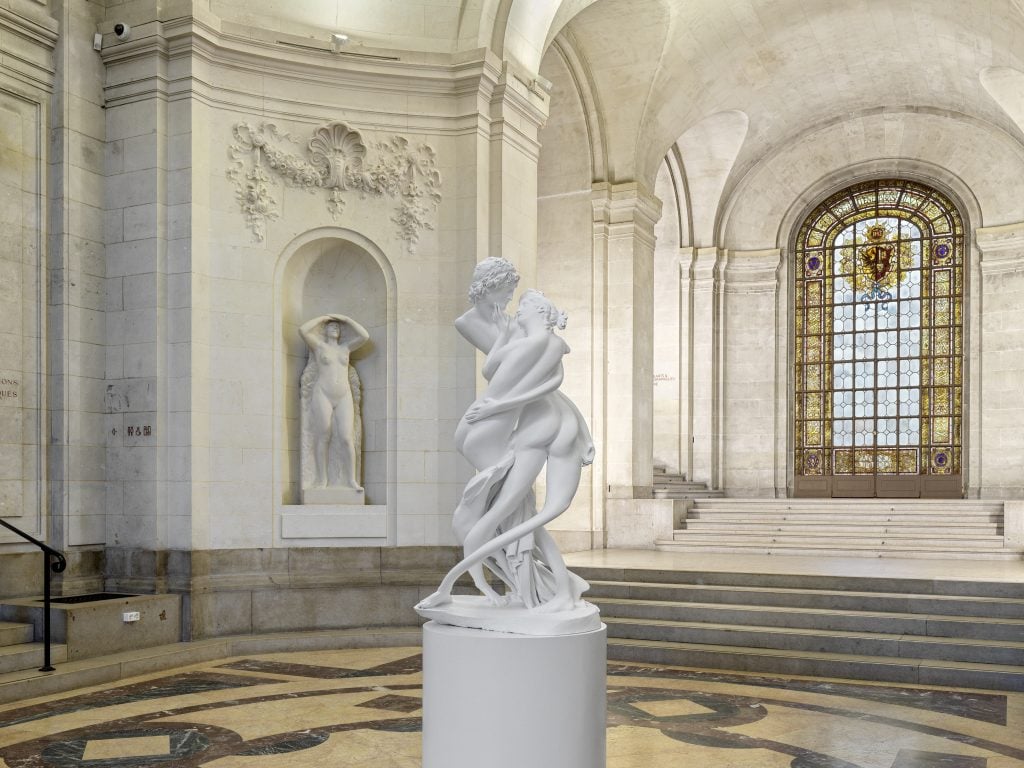
Installation view of “The Order of Things” (2024). Courtesy of the Museum of Art and HIstory, Geneva.
Delvoye has cited Catholic architecture and accoutrement like altars and reliquaries as an early source of inspiration, which he was exposed to during his childhood in Wervik in West Flanders. He studied at the Royal Academy of Fine Arts, Ghent, and garnered international acclaim with his participation at Documenta IX in 1992. Currently living and working between Ghent and Brighton, United Kingdom, his work can be found in the permanent collections of prestigious institutions worldwide, including SMAK, Ghent; Stedelijk Museum, Amsterdam; Centre Pompidou, Paris; and the Solomon R. Guggenheim Museum, New York.
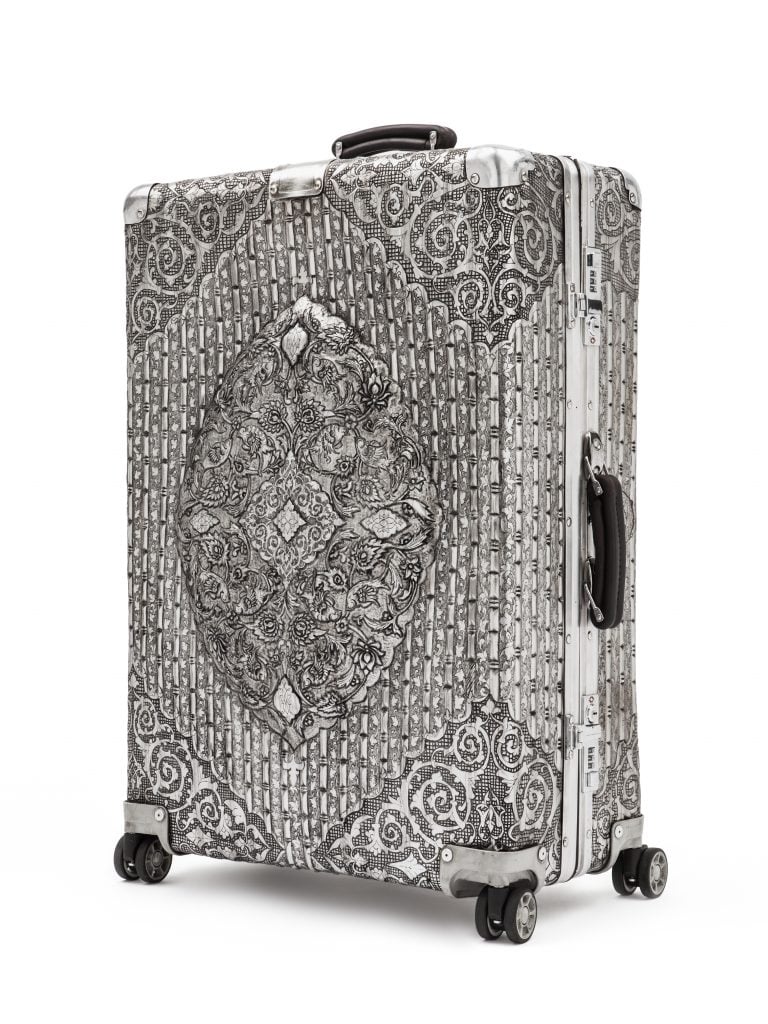
Wim Delvoye, Rimowa Classic Flight Multiwheel 971.70.00.4 (2013). © Studio Wim Delvoye. Courtesy of the Museum of Art and HIstory, Geneva.
Why We Like It: At once highly sophisticated and endlessly playful, Delvoye’s ability to take a recognizable object out of context and transform it through a lexicon of both contemporary and historical references and symbols. Inspired by the objects he encountered in the museum itself at the start of the project, Delvoye carefully selected pieces that created a tailored dialogue and, subsequently, perceptions of each. An example of this can be found in Rimowa Classic Flight Mutiwheel 971.70.00.4 (2013), a sculpture modeled after the luxury luggage brand but transformed by fine etching and carving evocative of the masterfully crafted armor and metal objects on view in the museum. Contrasting the two, themes of luxury, accessibility, and prestige are highlighted, and connect perceptions of the past and present in terms of consumerism and commercialism. Elsewhere, the influence of Catholic architecture—and early inspiration—is delicately relayed in Nautilus (2017), where the iconic shell is instead comprised of a gothic windows and spires.
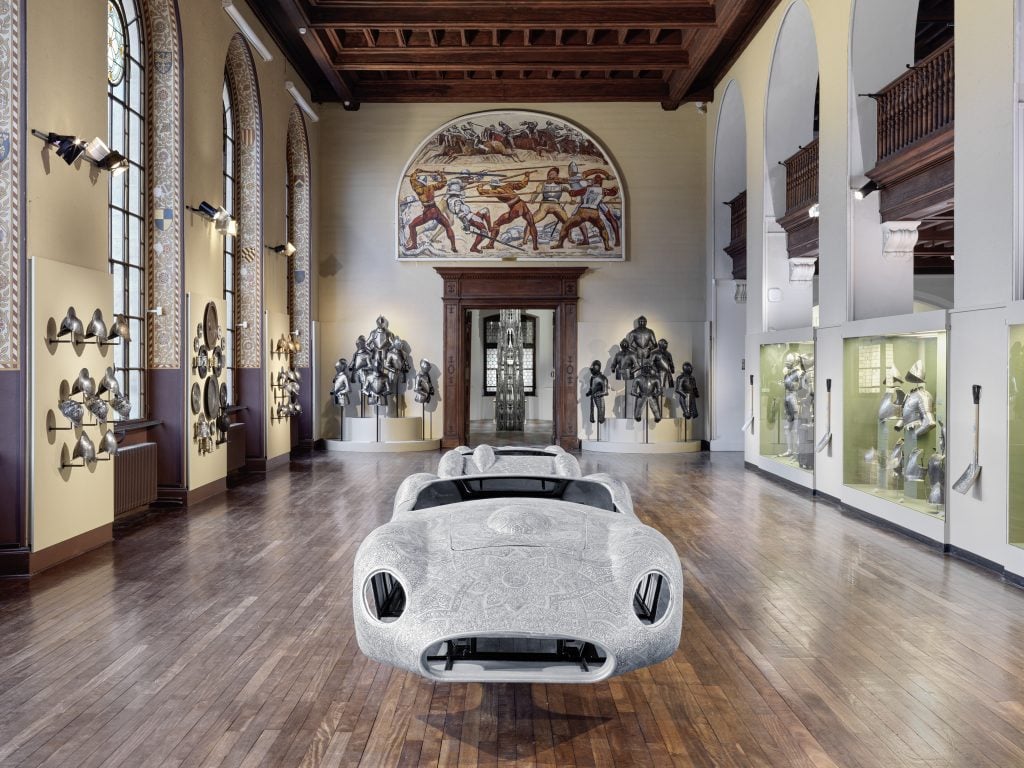
Installation view of “The Order of Things” (2024). Courtesy of the Museum of Art and HIstory, Geneva.
“The Order of Things” is on view at MAH Geneve through June 16, 2024.